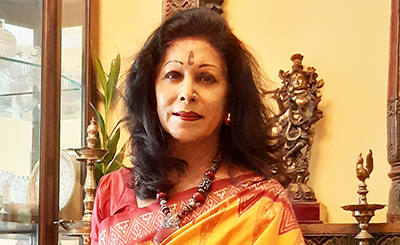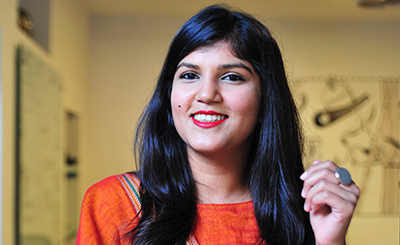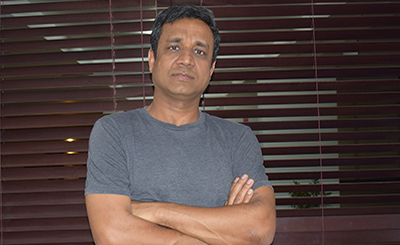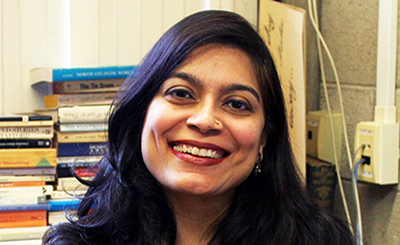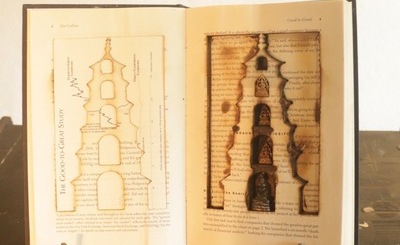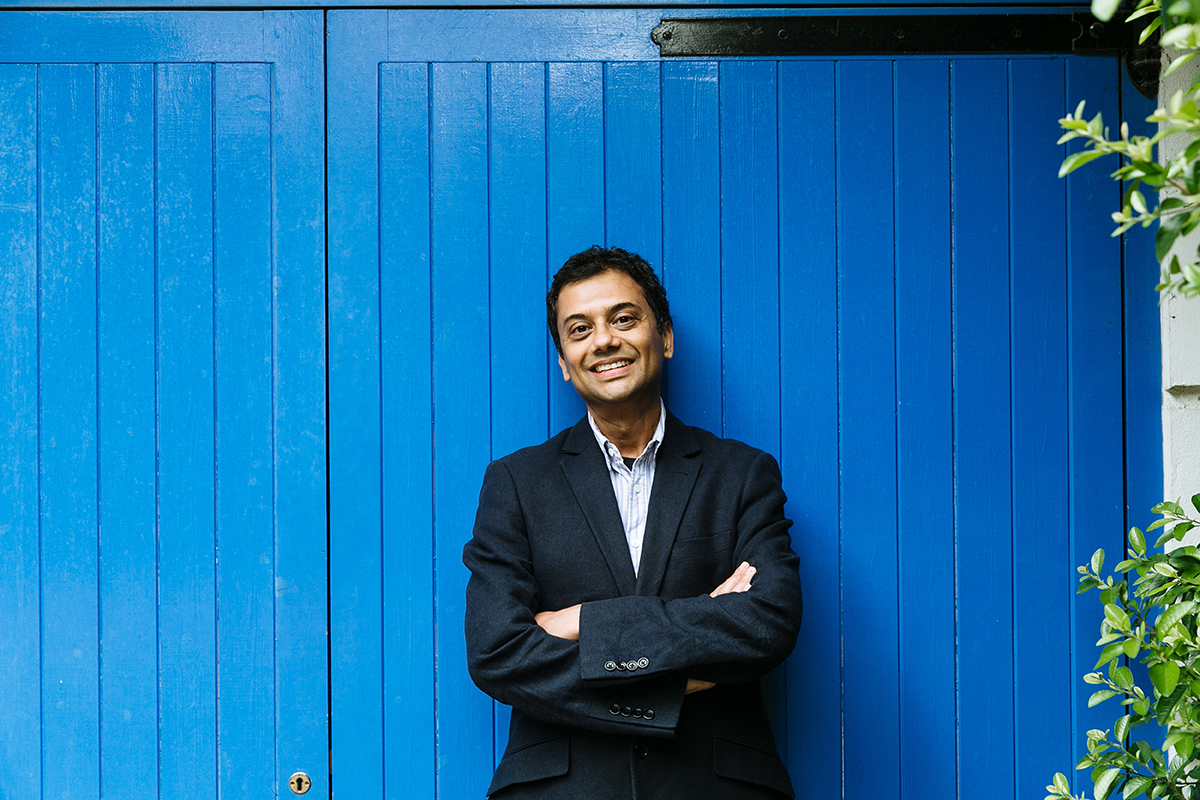
Neel Mukherjee. Photo: Nick-Tucker
In A State of Freedom, his new novel which is out in the US in January 2018, Neel Mukherjee delves into the issues of displacement and migration. And the human urge to strive for a different life. A novel of multiple narratives, peopled by characters from different strata, it strives to ‘bring maximum dignity and seriousness to depicting lives from the perspective of the person to whom it belongs’
Neel Mukherjee’s third novel, A State of Freedom, which is being published by W.W. Norton in the United States in January 2018, is a vividly imagined novel. A devastating portrait of grinding poverty and the inhumanity of the rich to the poor, the novel examines how inequities of money and power demean and deform the human condition.
Mukherjee’s first novel, Past Continuous won the Vodafone-Crossword Book Award in 2009 and several more awards when it was republished in the UK (as A Life Apart) in 2010. His second novel, The Lives of Others, was shortlisted for the 2014 Man Booker Prize and won the Encore Award.
In A State of Freedom, Mukherjee dwells on displacement and migration to bring to us fragments from the lives of multiple characters caught in different circumstances ― from a domestic cook in Mumbai, to a vagrant and his dancing bear, to a girl who escapes terror in her home village for a new life in the city ― who find out, in their own ways, the meanings of dislocation and the desire for more.
In this interview, Mukherjee says that the structure for A State of Freedom is inspired by V.S. Naipaul’s 1971 novel, In A Free State. “I wanted to look hard at the idea that one person’s life may not hold much value for another but it is everything to the person whose life it is; it matters to him or her more than anything else in the world. I wanted to bring maximum dignity and seriousness to depicting lives from the perspective of the person to whom it belongs, not just in any technical point-of-view kind of way, but also morally and philosophically in making any gap between narration and the subject of narration tend towards zero,” says Mukherjee. “Thinking about In A Free State gave me my own book. The fact that the structure of A State of Freedom reflects the fractured and disrupted lives of the characters is an added bonus, something serendipitous,” adds Mukherjee. Excerpts from the interview:
The Punch: A State of Freedom delves into dislocation, bringing to us fragments from the lives of others, the migrants. Did you want it to be a blend of the grinding poverty large chunks of India’s population have to live and cope with and, in contrast, the privilege enjoyed by a few others due to their socio-economic conditions? Were you interested in exploring the history and circumstances of their existence?
Neel Mukherjee: Yes, of course, I was interested in representing truthfully and unblinkingly what lives economic migrants within India have, not so much the contrast between the haves and the have-nots. But it was inevitable that that difference, that chasm, if you will, made its way into the book.
The Punch: We get a peek into the lives of a set of characters — the unnamed father-son duo in the opening chapter, two brothers, Ramlal and Lakshman, Raju, the orphan bear cub, Soni, who joins Naxalism, Milly, who makes the journey from Jharkhand to Mumbai, and Renu, the cook. It is interesting how the first chapter is linked with the last, with the death of a nameless labourer at a construction site casually referred in the first chapter finding space — and voice — in the last chapter, linking seemingly separate lives, separate stories. Tell us about the conception of the novel’s structure, the narrative frame of the novel which seems to have worked so well. Did you want it to reflect the fractured lives of your characters?
Neel Mukherjee: The structure of the novel is inspired by V.S. Naipaul’s 1971 novel, In A Free State, with which my novel, if you’ll permit me to compare the great with the small (this is not humble bragging; the facts speak for themselves – Naipaul is a Nobel laureate and one of the greatest novelists of the last century; I am only three books old), is an attempt at a conversation. The subtitle of Naipaul’s book, ‘A novel with two supporting narratives’, is slightly misleading: there are actually four supporting narratives, if you take, as Naipaul does, the eponymous and longest narrative, ‘In A Free State’, as the ‘novel’ of the subtitle. There is a prologue and an epilogue, each of which has a title, and there are those two ‘supporting narratives’, again with their individual titles (‘One Out Of Many’ and ‘Tell Me Who To Kill’). Five narratives, none of which joins to another in any of the ways you’d expect, such as by continuity of story, shared characters, elements of plot. Instead, they cohere through theme or meaning; the theme is displacement. While rereading the book, I was struck by how daring the formal experimentation was, and also, how unostentatious and matter-of-fact about its formal audacity and novelty. Nowadays, of course, no novel is considered to be experimental unless it’s autofiction, or written in numbered paragraphs, or printed with white letters against a black background, or has orthographical hi-jinks going on, or whatever. Could the formal inventiveness of Naipaul’s novel have been overlooked, or at least considered secondary because of the realist mode (and material) within which he wrote, combining political observation, journalistic dispassion, and a very fine-grained psychological realism with its attendant emphasis on interiority? Thinking about In A Free State gave me my own book.
The fact that the structure of A State of Freedom reflects the fractured and disrupted lives of the characters is an added bonus, something serendipitous.
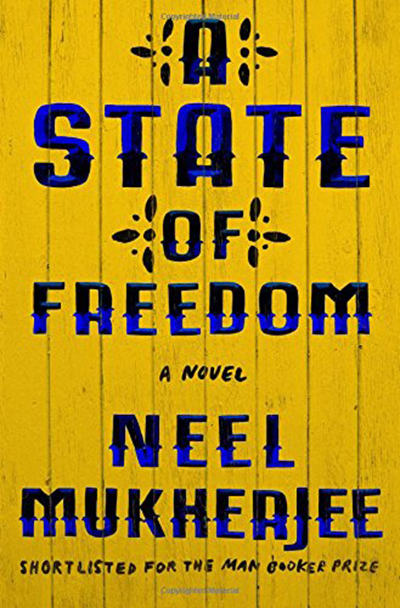
A State of Freedom
By Neel Mukherjee,
W. W. Norton
& Company,
pp. 288, $17.07
The Punch: An important takeaway from the novel is what Milly believes in: That her life was not fragmented. It had unity and coherence. She lent them to her life, despite living, as Soni tells her during their last meeting, “in bits and pieces — a little bit here, a little bit there.” Did you have this strand of thought on your mind as the possible motif for the novel as what Milly believes in is something that could be said about millions of people around the globe today who are constantly on the move, leaving their home and hearth, seeking newer homes and places to belong to?
Neel Mukherjee: I did not have that particular thought of Milly’s in mind as a motif but, yes, of course, as you point out, moving, being in transit, being uprooted — and transplanted, if you’re lucky — are the overwhelming experiences for such a vast number of people in the world. Has it always been thus, historically speaking? Or are the twentieth and, so far, the twenty-first, centuries especially marked by migration? And no issue crystallises so much the dividing line between insiders and outsiders, those who have and those who are in search of something to have. I wanted to look hard at the idea that one person’s life may not hold much value for another but it is everything to the person whose life it is; it matters to him or her more than anything else in the world. I wanted to bring maximum dignity and seriousness to depicting lives from the perspective of the person to whom it belongs, not just in any technical point-of-view kind of way, but also morally and philosophically in making any gap between narration and the subject of narration tend towards zero.
The Punch: Some reviewers have highlighted how hunger is as much a framing device and trope as an actual, corporeal presence in the novel, which is replete with references to food, or its lack thereof, and eating. Tell us about your interest in cooking and cuisines as a writer that has been put to good use in this novel.
Neel Mukherjee: First off, I’m emphatically not a foodie! I just hate that term; that refined connoisseurship, the fussiness and preciousness and pretentiousness it implies. Ugh. I’m a greedy person — I love to eat, and I love to eat pretty much everything. Yes, I’m interested in food over and above its functional aspect, and I take great pleasure in the non-functional side of food and eating — always at the centre of my life! — and the attendant businesses of preparation, cooking, feeding others. I suppose what I’m trying to say is that food is an intellectual interest too. I read cookbooks and recipes, often not with the end-purpose of cooking in mind. Anyway, to return to the topic of food in A State of Freedom … food is the most fundamental site on which wealth/poverty plays out and is most easily comprehensible. Ask a very poor person what s/he wants in life and chances are that s/he will reply: ‘Two square meals a day, a roof over my head, a regularity of income, security for my children’, probably in that order. When I was growing up in Calcutta (now Kolkata), I often used to hear a Bengali saying that goes something like, ‘All this high talk of x (insert whatever you’re mocking: the arts, revolution, rights, whatever) is worth zilch if you don’t get to fill your stomach twice a day’. I wanted to cover a whole spectrum by looking at two opposite valences of food: food as a luxury item, a lifestyle item, to the wealthy, and food, and its lack, as a matter of survival for the poor. It’s the most fundamental, most vital, unit of division between the haves and the have-nots.
The Punch: In A State of Freedom, you also return to familiar territories. Your second novel, The Lives Of Others (2014), was set during the turbulent era of Naxalism. In A State of Freedom, Soni joins Naxals while Milly escapes its horrors and moves to Bombay. How central do you think Naxalism is to the story of poverty and inequality in India?
Neel Mukherjee: I don’t know about ‘central’ but is it so unnatural, or imagination-defying, that deprived, downtrodden — ‘Dalit’, literally — people who have been at the receiving end of centuries of inequality and inhumanity should rise up against oppression and want to better their lives when all accepted, sanctioned channels of change have not worked? Didn’t Camus once say something about terrorism being the last resort of the hopeless? Here is Langston Hughes’ great poem ‘Harlem’:
What happens to a dream deferred?
Does it dry up
like a raisin in the sun?
Or fester like a sore —
And then run?
Does it stink like rotten meat?
Or crust and sugar over —
like a syrupy sweet?
Maybe it just sags
like a heavy load.
Or does it explode?
Look at the two extraordinary spaces, the first between the crusting and sugaring over and sagging, and the coiled, dangerous final one before the explosion. Entire worlds, entire novels, reside in those spaces. I wanted to catch the moment of explosion in The Lives of Others and the drying up, festering, stinking, crusting and sugaring over, sagging, and those two double strokes of the return key in A State of Freedom.
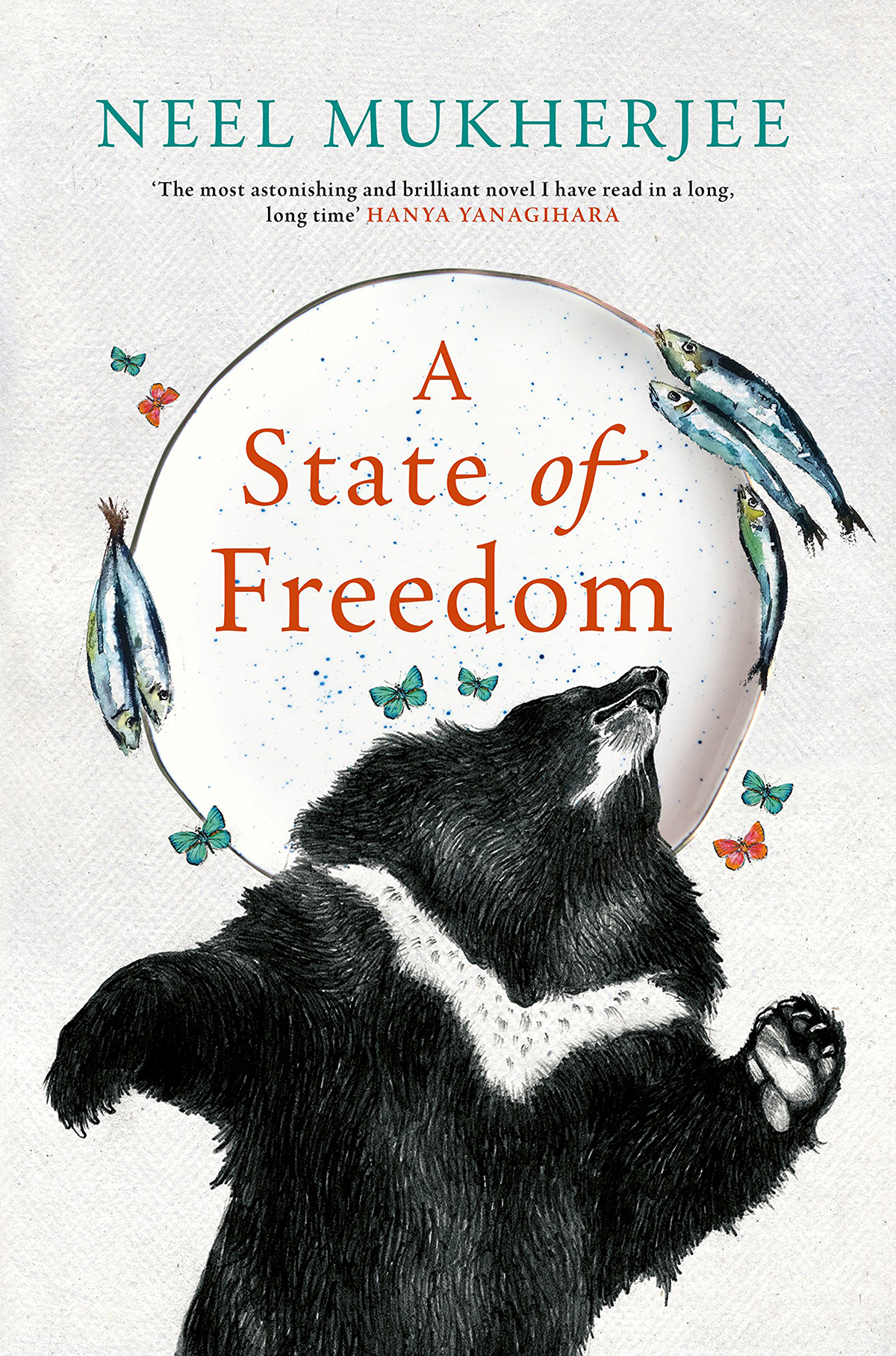
The cover of the novel, published by Penguin Random House India
The Punch: In A State of Freedom, its release timed with India’s independence (in India and the UK), were you also interested in exploring the divisions of class and wealth that seem to define human relationships? There are constructs of master and slaves — while poverty forces Lakshman to beat a wild bear so that it will dance for a handful of rupees; Milly, who has been working as a maid since she was eight is treated like an animal by her employers. In India, do you see this as impacting social cohesion?
Neel Mukherjee: There is no social cohesion in India. It is one of the most severely hierarchised countries in the world where the model is: you shit on the person below you in the hierarchy and suck up to the person above. It has historically been such, always, and I hold out zero hope for the future of any structural change.
The Punch: One can glean a great deal of empathy in the manner you write about the lives of others. There are many moving paragraphs in the novel that describe the squalor and despair of the poor, of people living at subsistence level. As someone living a life vastly different from many you write about, how do you achieve this empathy? How do you approach, for example, a character like Lakshman?
Neel Mukherjee: You imagine him; that’s all that there is to it. At a time when no fiction is deemed authentic or true if journalists — and now, even more dismayingly, readers — can’t find elements of the author’s personal life and circumstances in the work in question, it is useful to be reminded of what it is that we novelists and short story writers try to do: we squeeze our eyes tight shut and imagine what it is like to be another person and launch ourselves into her or his life. We become them. I’m at last beginning to understand what Flaubert meant when he replied, ‘Madame Bovary — c’est moi’, to the question of who (what real-life person) Emma Bovary was.
The Punch: The poor and the marginalised, in the novel as much as in real life, are constantly working to achieve self-determination despite the blows of destinies and widespread social iniquities. In A State of Freedom, you, in some sense, subvert the expectations of your protagonists by showing that even autonomy or freedom — physical or financial — can prove to be most confining. Are you interested in such subversion?
Neel Mukherjee: I don’t so much subvert their expectations as try to show — again, unblinkingly — how everything is stacked against the poor, how much more difficult it is for them to ‘achieve self-determination’, as you put it, than for people with a larger choice-palette, ie, fewer constraints. There is no thinking about freedom or choices that is not also, inextricably, a thinking about constraints.
The Punch: So, A State of Freedom is not quite a state of freedom for your protagonists, many of whom continue to struggle, each caught in the shackles of their circumstance. Today, in the light of what is happening in India day in and day out, do you see such people drifting apart from the very idea of an ideal state of freedom?
Neel Mukherjee: Your point about the ‘idea of an ideal state of freedom’ directs us to the double meaning I intended the word ‘state’ to carry — both condition and nation, the latter alluding to Nehru’s famous ‘tryst with Destiny’ speech on the eve of the nation’s independence from British rule. Has the free state lived up to the things promised for the vast majority of its people?
More from The Byword
Comments
*Comments will be moderated




